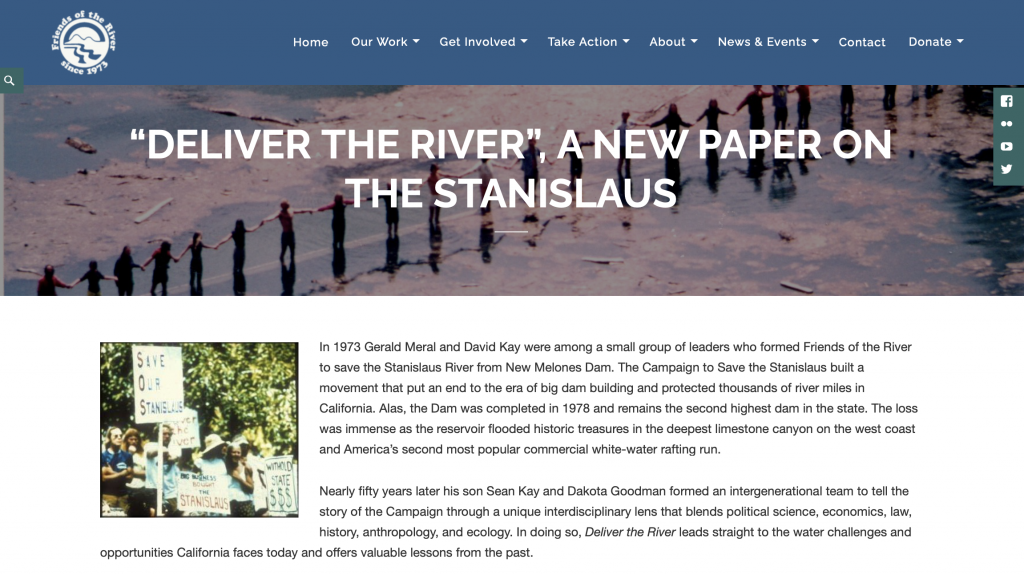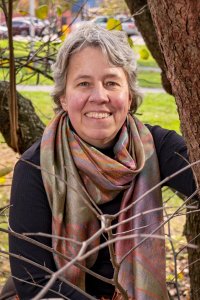Dr. Kay teaches, among other things, PG 280 Environmental Politics and Policy at OWU. He’s co-authored a new article on environmental policy and the Stanislaus River in California (link).
As many know, in the last few years, I’ve taken a dive into teaching and research on environmental issues. I’m very excited that this paper that I have co-authored with Dakota Goodman has been published by Friends of the River this week – “Deliver the River: States’ Rights, Cost-Benefit, and Environmental Justice on California’s Stanislaus River.” Friends of the River is the non-profit in California that my father helped to co-found in 1973, to lead the campaign to save the Stanislaus from a wasteful and unneeded New Melones Dam and Reservoir. After my father passed away, I got his files on this, and we were able to use those to rerun and update the case against the dam, including cost-benefit assumptions, and we have shown the extent of the loss, and lies, that were used to sell the dam – and document the harm it has done ecologically and to local communities. And, we show the way forward to deliver the river, finally about 50 years later, so that the Camp 9 Run on the Stanislaus can finally be liberated and a better way of water management achieved in California.
I hope folks can take a few minutes and read (and feel free to share!) the article – it’s both a strong personal tribute to my dad, but more importantly to the river we all lost, and yet still remains under the reservoir, waiting to flow once more.
More information here.



